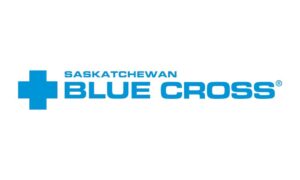Is this a model for industry training?

Is this a model for industry training? | Insurance Business Australia
Insurance News
Is this a model for industry training?
The drive to upskill the industry
Insurance News
By
Daniel Wood
Across the insurance industry some firms are investing significant efforts into training their employees. The initiatives, including internal education programs and mentorships, reflect a recognition that greater professionalism with more explicit career opportunities will improve business outcomes and help retain staff.
For example, some of the big insurers, including Insurance Australia Group (IAG), Suncorp Group and Allianz Australia have their own graduate programs. Gallagher Bassett and Canopius Group also have well established mentorship initiatives.
Arteva Funding, a premium funder, is in the early stages of taking its internal education initiatives to the next level. The plan is to develop education programs for business partners like brokerages based on Arteva’s own internal training.
“We started looking at how we can add that value and bring additional training, particularly professional education across our wider team,” said Gronert.
He said the firm realised that, like many insurance firms, Arteva was already good at training up employees and business partners about their product offerings and what differentiates them.
“So we end up with businesses full of junior and mid-level product experts,” said Gronert.
However, the CEO said there was lack of in-depth business expertise within Arteva’s employee base and insufficient career pathways to train future leaders.
“We thought about how we could bring in different subject matter experts and utilise our own internal subject matter experts to upskill the education process that goes on for our internal employees,” said Gronert.
As a finance company, he said this included educating staff on quite basic financial matters. This included understanding profit and loss statements, balance sheets and reading financial figures in order to understand a business’s strengths and possible weaknesses.
“That could be our own business or a client’s business, or just understanding wider economic trends,” said Gronert.
That education developed to include examining the specific roles within Arteva’s business.
“Then we thought, why don’t we go wider than that? How do we start talking to our staff about the value that each role in our business actually plays?” he said.
Sales and leadership skills
One focus area was the sales team.
“They generate the business, but what does it actually mean to be in sales?” said Gronert. “How do you actually create a pathway to a career in sales because it performs a very valuable function for our business?”
Another internal training effort involved leadership skills.
“As we started to flesh this out as an idea,” he said, “we thought, if we’re going to all of this effort, why don’t we see if there’s additional value we can take to our business partners?”
The additional value would involve offering these partners variations on the internal training at Arteva.
“We saw that if there’s a way that we can work with our business partners to help upskill that next generation of employees to add additional value within their own business, then why not do it?” said Gronert. “That was the original concept and we’ve started to flesh it out for that purpose.”
The CEO said they have seven or eight topic areas that will become educational seminars, webinars, or training programs. The firm expects to start rolling these out after adapting the content through conversations with their business partners. The training could be stand-alone courses or added to existing events or conferences. The subject matter experts could be Arteva staff members or an external facilitator, he said.
Sales training 101
Gronert suggested that some insurance businesses, including brokerages, would get a lot out of providing staff with basic sales training. This could include how to talk to clients, how to manage portfolios and close transactions. Staff without this sort of training, he said, can have “a sense of fear” around closing the deal.
“Staff can be scared to talk about basically asking for money, to get paid for the work that they’re actually doing,” said Gronert. “That’s simple sales training 101 on how to actually close a deal and it’s not complicated and it adds considerable value for a brokerage.”
The value, he said, comes from understanding how sales fits within their value chain and how it can help control the brokerage’s debtors.
What training would benefit your brokerage? Please tell us below
Related Stories
Keep up with the latest news and events
Join our mailing list, it’s free!




